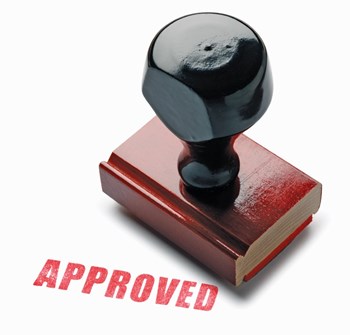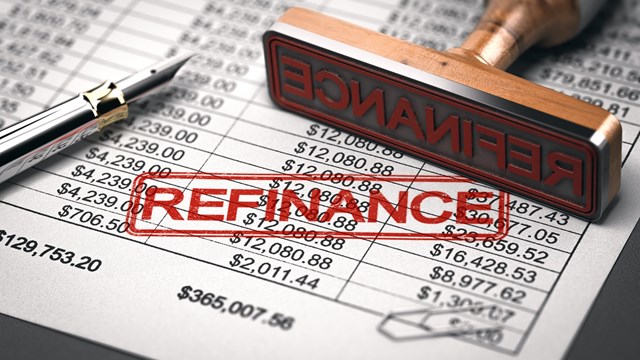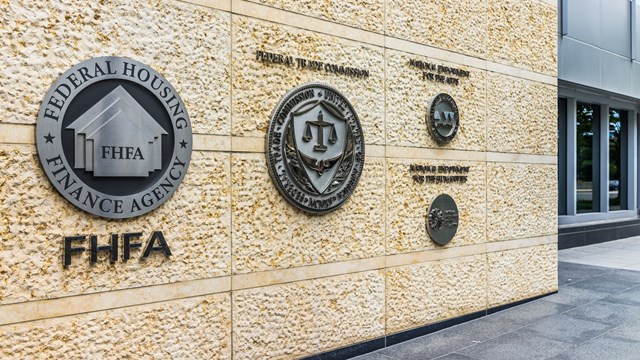
Tighter lending requirements for Federal Housing Administration (FHA)-backed condo mortgages have put financial and administrative pressure on HOAs all over the country at a time when many are ill prepared for any new challenges.
The most onerous of the new requirements are mandated reserve fund contributions, a 15 percent limit on condo fees delinquencies, and the specification that the condominium itself obtain FHA approval—this resulting in reams of additional paperwork for community associations. The new requirements aren’t mandatory, but they do affect the ability of owners to sell their units. FHA-backed loans have taken over the lion’s share in some markets because they allow modest 3.5 percent down payments, making them the only option for many first-time buyers and others without a lot of cash on hand.
Condos that don’t seek FHA-approval under the new guidelines could find themselves losing property values and community support, warned White Plains-based National Condo Advisors CEO Orest Tomaselli at The New Jersey Cooperator's annual Condo, HOA & Co-op Expo earlier this spring. “If there is no financing [for condo sales]," says Tomaselli, whose firm helps condos achieve FHA approval. "People start paying their maintenance [fees] late. People stop caring about the development because they can’t refinance. They can’t get out, they can’t sell their units, nobody can buy. It’s a problem."
The details of the new FHA guidelines were announced in February of this year, says Ray Lamberti Jr., a home mortgage representative with Wells Fargo. The changes were initiated as a means of addressing the increased risk in the housing market and strengthening the FHA's capital reserves, thus improving their financial position and ensuring their long-term ability to guarantee affordable mortgages.
"Under the new guidelines, mortgage insurance premiums (MIP) increased from 1.75 percent to 2.25 percent of the loan amount," he says. "In addition, there was a reduction of the allowable amount of seller concessions to the buyer from six percent to three percent. In the past, sellers could offer up to six percent of the home's closing cost to the buyer as an incentive if the buyer used an FHA mortgage; now, the allowable concession is only three percent of the closing cost."
There are definite upsides, however. Lamberti goes on to say that other advantages of an FHA-insured loan include little or no adjustment to the mortgage interest rate during the life of the loan, a mortgage insurance premium (MIP) that is funded into the loan instead of being paid for out-of-pocket and the fact that the mortgage can be assumed by a qualified buyer, which means that if the seller's mortgage carries a lower rate than the current market rate, the buyer can take over the seller's mortgage. "This is a great option for the buyer to have if they sell their unit five or six years later and the rates are higher at that time," says Lamberti. "Another big advantage of a FHA-insured loan in today's climate of widespread job displacement and workforce reduction is that, unlike with a conventional mortgage, friends or relatives can gift the down payment to the borrower."
Paying for Others’ Excesses
According to Bank of America Vice President Andrew Leff, lending parameters have changed drastically in response to the banking crisis over the past two years. Fannie Mae and Freddie Mac requirements are tougher and lending restrictions have been enacted that affect both commercial investors and first time homebuyers. Banks are looking at the individual co-op or condominium building’s financial picture before approving the borrower, he says.
“We’re back to standard vanilla loans being made,” says Leff, who is also divisional builder manager at BofA. “Today we have to understand condominium lending nuances. It’s not just the [borrower’s] credit but it’s the condo that’s approved.”
Allie Baldassari, a mortgage loan officer at the bank, adds that these days, buyers have to have their financial houses in order before applying for a mortgage. Banks need more than just income, assets and credit—they need documentation for everything, and each loan undergoes much more scrutiny than ever before.
These new, stricter requirements have not been popular in the region, with some saying New Jerseyans other Northeasterners are paying the price for subprime loan excesses and large, failed developments in other parts of the country. Acknowledging that the guidelines have been enacted to safeguard taxpayer money, Medway, Massachusetts-based realtor and board member for the Greater Boston Association of Realtors Paul Yorkis says, “I don’t mind if the FHA is protecting the taxpayers, but the problems they are trying to protect taxpayers from have happened in Florida, or in Nevada—not in the Northeast."
“We typically don’t see 400-, 600-unit condos being built [here]," Yorkis continues. "When you see that, it’s the exception to the rule. In Florida and Arizona and other parts of the United States, those are considered small to modest condominium developments. So what's happened is small projects...are being treated and being controlled in the same way as a large project, and it’s overkill. I would have preferred that the FHA regionalize its policies based upon market conditions, rather than setting a one-size-fits-all national standard, which doesn't work."
Popular or not, the standards are affecting HOAs across the region, both existing ones and projects under development. The majority of the standards, discussed below, are aimed at existing community associations.
10% Reserve Requirement
The most problematic of the new FHA regulations for condo associations is the requirement that annual budgets contain a minimum 10 percent reserve fund contribution. The mandate comes at a time when many cash-strapped condos have cut back on funding reserves in recent years.
At the Expo seminar detailing the new regulations, Tomaselli called the reserve mandate the “biggest issue” currently facing the condo industry. “I can’t wait for someone to write an article that says, ‘Everybody’s maintenance is going up 10 percent,’ because that is what is going to happen," he said." There is not a choice anymore."
The lone exception to the 10 percent requirement, Tomaselli noted, are condos that have a legitimate reserve study that mandates a lesser financial contribution—two examples being a newer community with low maintenance requirements or “green” buildings that only require two or three percent reserves because of long-lasting green materials. “That’s a reason for doing a reserve study,” Tomaselli said.
Another problematic requirement mandates that FHA-backed loans will not be approved for HOAs with more than a 15 percent delinquency rate on monthly condo fees.
According to Tomaselli, some condos are on thin ice in this department. “If you have a bad month, if you have some homeowners who have lost their jobs, it’s very easy to go above that 15 percent," he said, "and the lender cannot lend in that condo if you have more than 15 percent."
One way for HOAs to keep their delinquencies beneath 15 percent is to be more aggressive in pursing collections, keeping the pressure on the unit owner and the lender to pay the late fees.
Approval and Due Diligence
The part of the new regulations that’s generating considerable office work for condos is the requirement that the entire condo has to apply for and receive FHA approval for individual loan applications to even be considered. According to the professionals, the time and money involved in gathering and preparing the required documentation for the application process is considerable. Managers typically charge a fee for putting together some of the documents, and the lenders or approval companies also charge a fee for submitting it to FHA. According to one accountant, associations could be spending $3,000 to $5,000 for the approval.
Adding to the paperwork for condos is the requirement that potential lenders must do their own research and independently certify that the condo is FHA-compliant. And if one bank certifies that a condominium is FHA compliant, that certification won’t be valid for the second, third or fourth bank that comes along—they will all need documents and paperwork from the condo.
To make it easier for potential buyers to obtain loans on individual condo units, Tomaselli suggests that condos develop relationships with three or four loan providers, which will then become open to making loans to buyers. “Let [lenders] know the condo is FHA-approved, is Fannie Mae-approved and ‘this is the way we got it approved,'" he says. "We think it’s an integral tool for a property manager and the board… to help their developments out."
The pros do point out that an HOA's workload for loan approval will decline after the initial FHA loan approval is run through for one lender. Once the initial approval is complete, the general consensus seems to be that the lender questionnaire will answer most of the new questions that a given lender needs to know.
The Magic 680
On the consumer loan side, Tomaselli says that requirements for the loan seeker have been tightened up as well—the most dramatic being that successful FHA loan applicants must have a minimum 680 credit score. “That [680] might not seem like a lot, but most people are around a 660 credit score,” he says. “The buyer pool for people who can actually obtain a mortgage in a condo has shrunk to such a small number. These Fannie Mae requirements make it difficult for an average-Joe buyer to buy a unit.”
If buyers cannot get an FHA-backed loan, Tomaselli says they will be forced to obtain conventional financing with a minimum 20 percent down payment requirement. “If you think about the numbers, on average condominium units across the country are looking at a $350,000 sales price. You’ll need to come up with $70,000 in cash plus closing costs to buy the unit. I know a lot of people, but I don't know a lot of people who have $70,000 in cash.”
Yorkis goes on to say that buyers who are obtaining FHA-backed mortgages tend to be “smart buyers” who understand the new rules of the game. “They’re wise about their use of credit. and about paying the bills on time," he says.
New Condos Have Tougher Rules
While the new FHA regulations have put the squeeze on existing condos, new developments are being pinched even harder.
The hardest requirement is an outright prohibition on renting out condos in new developments—a tactic which has helped many developers with cash flow until sales kick in. Tomaselli said the new requirement has “plunged the developer into foreclosure in some cases, and there’s so much distress in the marketplace because of this.” There are “certain ways” to get projects approved with renters, but it involves jumping through many hoops, he added.
Other thorny issues for developers include a requirement that least 50 percent of the total units must be sold before FHA-backed mortgages can be issued, and a rule that no more than 10 percent of the units may be owned by one investor.
That being said, new HOA developments are taking steps to make sure they're FHA approved before the first unit is even in contract.
One example is Jersey City's new Trump Plaza Residences. The 55-story condo tower has done brisk business thanks to being FHA loan-compliant; as of this past spring, over half the building's 443 units had been sold. According to Lamberti, FHA mortgage terms for New Jersey differ from county to county, and allow for loans up to $729,000. The majority of prospective buyers at Trump Plaza Residences are first-time homebuyers seeking homes in the $450,000 to $600,000 range, and therefore qualify for FHA financing.
The Hoboken/Jersey City area is also home to 700 Grove, another new development whose FHA approval has contributed to robust sales, according to developer Toll Brothers City Living.
Pricing at the 12-story, 230-unit 700 Grove starts in the upper $400,000s, but “With the FHA qualified loans, the initial outlay for buyers at 700 Grove is very modest,” says Ben Jogodnik, Toll Brothers City Living senior vice president. “People who may not have been able to afford a traditional down payment now have the opportunity at 700 Grove. Furthermore, residents at 700 Grove can take advantage of a number of Hoboken conveniences that residents of Hoboken—just a couple hundred yards away—enjoy at a slightly higher price.”
Logjam on the Horizon?
Looking ahead, financial professionals predict more gloom—as well as a possible bright spot. At the end of 2010, an administrative logjam will set in as condos that already have FHA approval put in their applications for renewal. However, the renewal documents won’t be even accepted until November 1.
On the bright side, the regulations will likely be revised this fall—most likely in October. Any revisions would be announced in a new “mortgagee letter” from Housing and Urban Development (HUD), the agency promulgating the new rules. This would be the third mortgagee letter issued since last year, and it’s possible that such revisions could be beneficial to condos.
Jim Douglass is the managing editor of New England Condominium magazine, a Yale Robbins' publication. Hannah Fons contributed to this article.






Comments
Leave a Comment